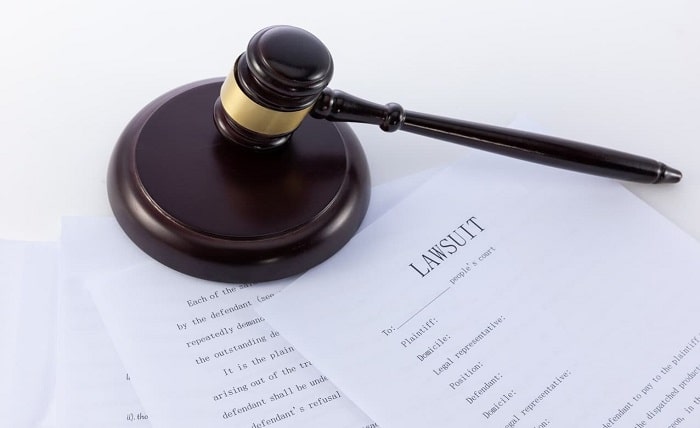Smoothstack Lawsuit: An In-Depth Analysis

Introduction
The tech industry was recently shaken by news of the Smoothstack lawsuit. Smoothstack, a prominent tech apprenticeship program, has been embroiled in a legal battle that has raised questions about employment practices, training agreements, and the treatment of apprentices. This blog post delves into the details of the Smoothstack lawsuit, examining its origins, the key players involved, the claims being made, and its broader implications.
Background of Smoothstack
Smoothstack is a well-known entity in the tech industry, particularly recognized for its apprenticeship programs designed to bridge the gap between education and employment for aspiring tech professionals. These programs have gained attention for their rigorous training, promising to equip participants with in-demand skills. However, the Smoothstack lawsuit has cast a shadow over these initiatives, prompting scrutiny of the company’s practices.
Origins of the Smoothstack Lawsuit
The Smoothstack lawsuit began when several former apprentices came forward with allegations against the company. These individuals claimed that Smoothstack’s training agreements were unfair and exploitative, leading to financial and professional difficulties. The lawsuit alleges that the company misrepresented the terms of these agreements, leaving apprentices with significant debt and limited career options.
Key Players in the Smoothstack Lawsuit
The Smoothstack lawsuit involves several key players, including former apprentices, legal representatives, and Smoothstack executives. The plaintiffs in the case are seeking compensation for damages they claim resulted from misleading practices. On the other side, Smoothstack’s legal team is working to defend the company’s reputation and training model, arguing that their programs provide valuable opportunities for career advancement.
Read more about sdfx global
Legal Claims and Allegations
Central to the Smoothstack lawsuit are several legal claims and allegations. The plaintiffs argue that Smoothstack’s training agreements constitute unfair labor practices and violate employment laws. They claim that the company misled apprentices about job placements and compensation, resulting in financial harm. Additionally, the lawsuit raises questions about the legality of the non-compete clauses included in the training agreements.
Impact on Apprentices
The Smoothstack lawsuit has had a profound impact on the apprentices involved. Many of these individuals have faced significant financial strain due to the terms of the training agreements. The lawsuit has highlighted the potential risks associated with tech apprenticeships and raised awareness about the need for greater transparency and fairness in such programs.
Industry Reactions
The tech industry has been closely monitoring the Smoothstack lawsuit, with many stakeholders expressing concern about its implications. Industry leaders have called for increased regulation of apprenticeship programs to ensure that they provide genuine opportunities for career growth without exploiting participants. The lawsuit has also sparked a broader conversation about the responsibilities of companies offering training and apprenticeship programs.
Legal and Ethical Considerations
The Smoothstack lawsuit raises important legal and ethical considerations. At the heart of the case is the question of whether Smoothstack’s training agreements are lawful and ethical. The lawsuit has brought attention to the fine line between providing valuable training opportunities and exploiting vulnerable individuals seeking to enter the tech industry.
Potential Outcomes of the Smoothstack Lawsuit
The potential outcomes of the Smoothstack lawsuit are varied and could have far-reaching consequences for the company and the industry. If the plaintiffs are successful, Smoothstack may be required to pay significant damages and alter its training agreements. Such an outcome could lead to increased regulation of apprenticeship programs and set a precedent for how these programs are structured and managed in the future.
Broader Implications for the Tech Industry
The Smoothstack lawsuit has broader implications for the tech industry as a whole. It highlights the need for companies to adopt fair and transparent practices when offering training and apprenticeship programs. The lawsuit also underscores the importance of legal protections for apprentices and the potential consequences of failing to uphold these standards.
Conclusion
The Smoothstack lawsuit is a pivotal case that has drawn attention to the practices and ethics of tech apprenticeship programs. As the legal battle unfolds, it will be crucial to monitor its developments and consider the broader implications for the tech industry. The lawsuit serves as a reminder of the importance of transparency, fairness, and accountability in providing opportunities for aspiring tech professionals.
- What is the Smoothstack lawsuit about?
- The Smoothstack lawsuit involves allegations of unfair labor practices and misleading training agreements made by former apprentices against the tech apprenticeship company Smoothstack.
- Who are the key players in the Smoothstack lawsuit?
- The key players include former apprentices as plaintiffs, Smoothstack executives, and the legal representatives for both sides.
- What are the legal claims made in the Smoothstack lawsuit?
- The legal claims include allegations of misrepresentation, financial harm due to misleading training agreements, and the inclusion of potentially unlawful non-compete clauses.
- How has the Smoothstack lawsuit impacted apprentices?
- The lawsuit has brought to light the financial and professional difficulties faced by apprentices due to the terms of Smoothstack’s training agreements.
- What are the potential outcomes of the Smoothstack lawsuit?
- Potential outcomes include significant damages awarded to the plaintiffs, changes to Smoothstack’s training agreements, and increased regulation of tech apprenticeship programs.
Read more about: satta batta




